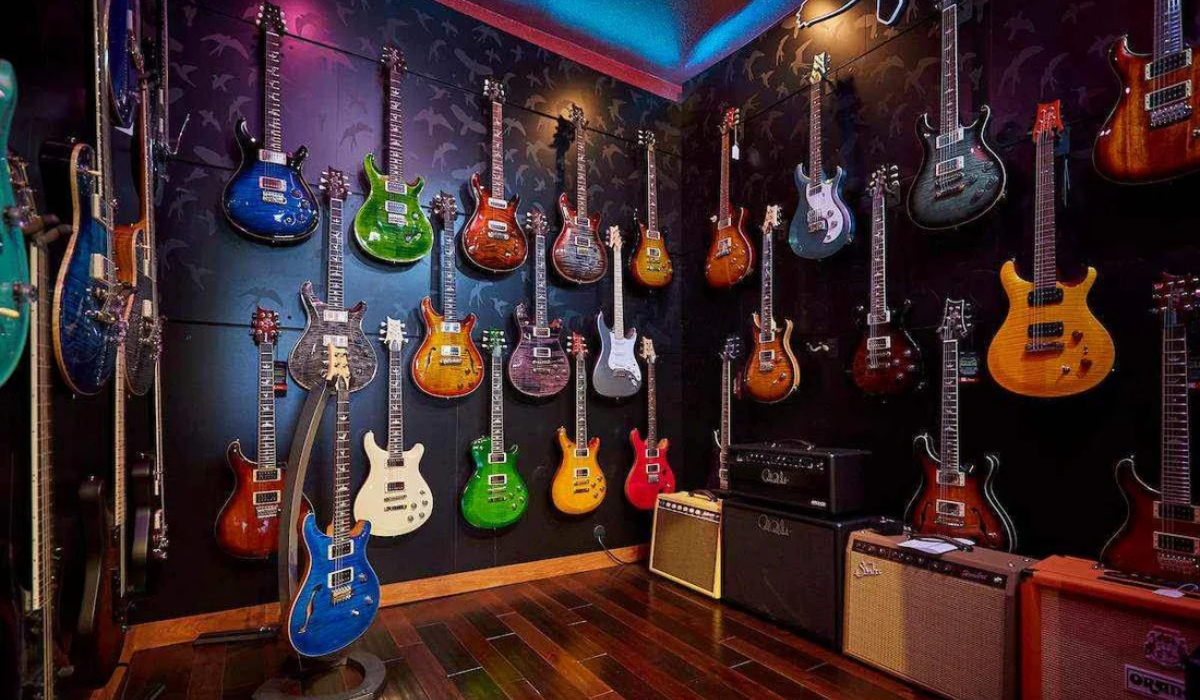With its rich history and universal appeal, the guitar has transcended its role as a mere musical instrument. It is a powerful archetype, symbolizing individuality, rebellion, cultural identity, and spiritual growth. Whether strummed gently in a quiet room or electrified on a concert stage, the guitar carries profound meanings that resonate deeply with its players and audiences.
1. A Symbol of Individuality and Expression
At its core, the guitar epitomizes personal expression and individuality.
- Emotional Depth: The guitar’s versatility allows musicians to convey emotions ranging from joy and love to heartbreak and anger. Whether it’s the delicate plucking of classical guitar or the raw energy of a rock riff, each note reflects the artist’s unique voice.
- Genres and Styles: The instrument’s adaptability across genres—from blues and jazz to country and heavy metal—illustrates its role as a canvas for creativity. It invites players to explore and share their distinctive artistic styles.
- Personal Connection: For many, the guitar becomes an extension of the self, a trusted companion through life’s highs and lows. Its six strings offer limitless possibilities for storytelling and self-discovery.
2. An Emblem of Rebellion
The guitar’s association with rebellion is deeply rooted in its history, particularly in the context of modern music.
- Rock and Roll Revolution: In the mid-20th century, the electric guitar became a defining feature of rock and roll, a genre that challenged societal norms. Artists like Jimi Hendrix and Chuck Berry used the guitar to create bold, electrifying sounds that defied convention and inspired generations of rebels.
- Countercultural Movements: The guitar was central to the anti-establishment ethos of the 1960s and 1970s. Bands like The Rolling Stones and The Clash wielded their guitars as instruments of protest, delivering messages of anarchy and resistance through distorted chords and high-energy performances.
- Youthful Defiance: For young people, picking up a guitar often signifies breaking away from conformity and embracing freedom of expression. Its sound, significantly when amplified, is a rallying cry for independence and individuality.
3. Cultural Significance of the Guitar
The guitar holds unique cultural importance across different regions and traditions.
- Texas Heritage: In Texas, the guitar is more than an instrument—it symbolises the state’s diverse musical landscape. From the soulful blues of Stevie Ray Vaughan to the storytelling of country legends like Willie Nelson, the guitar represents the essence of Texan culture.
- Global Identity: Beyond Texas, the guitar bridges cultural divides, serving as a unifying element in global music. Flamenco guitars echo the traditions of Spain while steel-string acoustics evoke the heart of American folk music.
- Cross-Genre Appeal: The guitar effortlessly blends into various musical genres, embodying the spirit of cultural diversity and innovation.
4. Spiritual Symbolism of the Guitar
The guitar’s symbolic journey extends beyond cultural and rebellious connotations, delving into realms of spirituality and self-discovery.
- A Path to Mastery: Learning to play the guitar is often seen as a metaphor for life’s spiritual journey. Each practice session represents a step toward personal growth, discipline, and enlightenment.
- The Guitarist as a Mystic: In some traditions, the guitarist is viewed as a seeker, channelling emotions and energy into a higher form of communication. Playing the guitar can be meditative, offering moments of reflection and transcendence.
- Harmonic Balance: Creating music with the guitar can symbolize the pursuit of harmony in life as players strive to balance melody, rhythm, and emotion.
5. The Guitar’s Enduring Appeal as an Archetype
In its many forms, the guitar remains a timeless symbol with a profound impact on human culture and emotion.
- A Storytelling Tool: For centuries, the guitar has been a trusted medium for telling stories of love, loss, rebellion, and triumph.
- Emotional Connection: Its sound resonates universally, evoking memories and emotions that transcend language and borders.
- Cultural Bridge: From street corners to grand concert halls, the guitar connects people through shared musical experiences.
Conclusion
As an archetype, the guitar embodies a rich spectrum of meanings—individuality, rebellion, cultural identity, and spiritual growth. Its versatility and emotional depth make it a beloved companion to musicians and listeners. Whether it’s a classical piece echoing in a serene hall or a rock solo electrifying a crowd, the guitar remains a timeless symbol of humanity’s creative and expressive spirit.
FAQs
- What makes the guitar a symbol of individuality?
The guitar’s versatility allows players to express their unique emotions, styles, and creativity, making it a personal and distinctive instrument. - Why is the guitar associated with rebellion?
The electric guitar, especially in rock and roll, symbolized countercultural movements that challenged societal norms and celebrated youthful defiance. - How is the guitar significant in different cultures?
From Texas blues to Spanish flamenco, the guitar represents various regions’ cultural diversity and musical heritage. - Can playing the guitar be a spiritual practice?
For many, learning and playing the guitar is a path to self-discovery, reflection, and mastery, symbolizing a journey toward spiritual harmony. - Why is the guitar universally loved?
Its adaptability across genres and its ability to evoke deep emotions make the guitar a cherished instrument worldwide.

